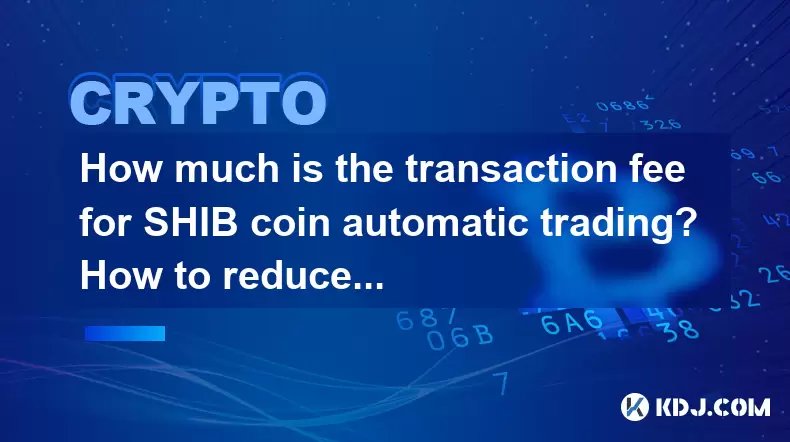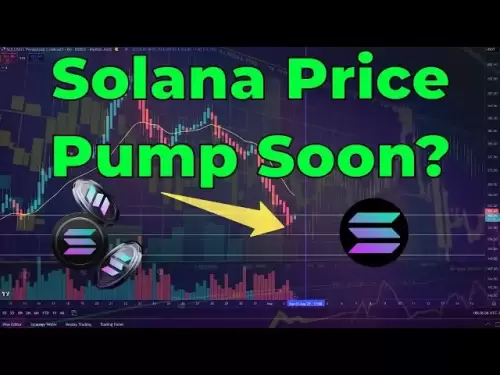-
 Bitcoin
Bitcoin $114400
1.84% -
 Ethereum
Ethereum $3496
3.49% -
 XRP
XRP $2.902
5.12% -
 Tether USDt
Tether USDt $1.000
0.03% -
 BNB
BNB $750.6
1.83% -
 Solana
Solana $161.8
3.52% -
 USDC
USDC $0.9999
0.01% -
 TRON
TRON $0.3262
2.20% -
 Dogecoin
Dogecoin $0.1991
4.57% -
 Cardano
Cardano $0.7243
5.29% -
 Hyperliquid
Hyperliquid $38.41
7.08% -
 Stellar
Stellar $0.3963
8.77% -
 Sui
Sui $3.437
4.53% -
 Chainlink
Chainlink $16.26
5.05% -
 Bitcoin Cash
Bitcoin Cash $542.7
3.79% -
 Hedera
Hedera $0.2474
9.14% -
 Ethena USDe
Ethena USDe $1.001
0.04% -
 Avalanche
Avalanche $21.39
3.03% -
 Toncoin
Toncoin $3.637
1.63% -
 Litecoin
Litecoin $109.0
3.76% -
 UNUS SED LEO
UNUS SED LEO $8.964
0.07% -
 Shiba Inu
Shiba Inu $0.00001219
4.31% -
 Polkadot
Polkadot $3.593
4.12% -
 Uniswap
Uniswap $9.149
5.01% -
 Monero
Monero $299.0
2.38% -
 Dai
Dai $1.000
0.01% -
 Bitget Token
Bitget Token $4.339
2.29% -
 Pepe
Pepe $0.00001047
5.37% -
 Cronos
Cronos $0.1340
6.71% -
 Aave
Aave $258.7
5.06%
How much is the transaction fee for SHIB coin automatic trading? How to reduce the transaction cost?
SHIB transaction fees vary based on Ethereum gas prices, platform fees, and network congestion; optimizing gas settings and timing can reduce costs.
May 19, 2025 at 10:49 pm

The transaction fee for SHIB coin automatic trading can vary based on several factors including the platform used, the type of transaction, and the network congestion at the time of the transaction. Understanding these fees and learning how to reduce them is crucial for anyone involved in automatic trading of SHIB coins.
What Influences SHIB Transaction Fees?
The primary factors influencing SHIB transaction fees include the gas price on the Ethereum network, the complexity of the transaction, and the trading platform's fee structure. SHIB, being an ERC-20 token, relies on the Ethereum blockchain, and thus, its transaction fees are directly affected by Ethereum's gas prices. These gas prices can fluctuate significantly based on network demand.
Understanding Gas Prices and Their Impact
Gas prices on the Ethereum network are measured in Gwei, with 1 Gwei equating to 0.000000001 ETH. The gas price you set for your transaction determines how quickly it will be processed. Higher gas prices result in faster transaction times but at a higher cost, while lower gas prices can lead to slower transaction times but at a reduced cost. For SHIB automatic trading, setting an appropriate gas price is crucial to balance speed and cost.
Trading Platform Fees
Different trading platforms have varying fee structures for automatic trading. Some platforms charge a flat fee per transaction, while others might use a tiered fee system based on the volume of trades. It's essential to research and compare the fee structures of different platforms to understand how much you might be paying in addition to the Ethereum network fees.
How to Reduce SHIB Transaction Costs
Reducing SHIB transaction costs involves a combination of smart trading strategies and choosing the right platforms. Here are some effective methods to lower your fees:
Optimize Gas Prices: Use tools like Etherscan or ETH Gas Station to check current gas prices and set your transaction gas price accordingly. Setting a slightly higher gas price during peak times can still be more economical than setting a very high gas price.
Batch Transactions: If you're executing multiple transactions, consider batching them into a single transaction. This can significantly reduce the total gas cost as you're only paying for one transaction instead of multiple.
Choose the Right Platform: Select trading platforms that offer competitive fee structures. Some platforms might offer reduced fees for high-volume traders or during promotional periods.
Use Layer 2 Solutions: Consider using Layer 2 scaling solutions like Polygon (previously Matic) which can offer lower transaction fees compared to the main Ethereum network.
Timing Your Transactions: Execute your trades during off-peak hours when gas prices are generally lower. This requires monitoring the network's congestion and planning your trades accordingly.
Practical Steps to Set Up Automatic Trading with Lower Fees
Setting up automatic trading for SHIB coins with an eye on reducing fees involves several steps. Here's a detailed guide on how to do it:
Choose a Trading Platform: Research and select a platform that supports SHIB automatic trading and offers competitive fees. Examples include Binance, KuCoin, and Uniswap.
Set Up Your Wallet: Ensure you have an Ethereum-compatible wallet like MetaMask or Trust Wallet. Connect your wallet to the trading platform.
Configure Automatic Trading: Navigate to the automatic trading section of your chosen platform. Set up your trading parameters, including the amount of SHIB to trade, the frequency of trades, and any stop-loss or take-profit levels.
Adjust Gas Settings: Before executing your first trade, adjust the gas settings. If using a decentralized exchange like Uniswap, you can manually set the gas price. For centralized exchanges, you might need to wait for off-peak times or use the platform's recommended settings.
Monitor and Adjust: Regularly monitor your automatic trades and adjust your settings as needed. Keep an eye on gas prices and network congestion to optimize your transaction costs.
Understanding the Impact of Transaction Volume
The volume of your transactions can significantly impact the fees you pay. High-volume traders might benefit from platforms that offer volume-based discounts. Conversely, if you're trading smaller amounts, you might want to prioritize platforms with lower flat fees to minimize the cost per transaction.
The Role of Smart Contracts in Reducing Fees
Smart contracts can play a role in reducing transaction fees by automating certain processes and reducing the need for multiple transactions. For instance, a smart contract can be programmed to execute trades based on specific conditions, potentially reducing the overall gas cost by minimizing the number of transactions needed.
Frequently Asked Questions
Q: Can I set a custom gas price for SHIB transactions on all platforms?
A: Not all platforms allow you to set a custom gas price. Decentralized exchanges like Uniswap typically allow you to adjust gas prices manually, while centralized exchanges might have fixed gas settings or recommend optimal settings based on current network conditions.
Q: Are there any risks associated with setting a very low gas price for SHIB transactions?
A: Yes, setting a very low gas price can result in your transaction being delayed or even failing to process. If the network is congested, transactions with lower gas prices might be stuck in the mempool for an extended period, potentially missing out on timely trades.
Q: How can I find the best times to execute SHIB transactions with lower fees?
A: You can use tools like Etherscan or ETH Gas Station to monitor Ethereum network congestion and gas prices. Typically, gas prices are lower during off-peak hours, such as early mornings or late nights in your time zone.
Q: Does using a hardware wallet affect SHIB transaction fees?
A: Using a hardware wallet like Ledger or Trezor does not directly affect SHIB transaction fees. However, you might need to consider the additional step of signing transactions on your hardware wallet, which could impact the timing of your trades but not the fees themselves.
Disclaimer:info@kdj.com
The information provided is not trading advice. kdj.com does not assume any responsibility for any investments made based on the information provided in this article. Cryptocurrencies are highly volatile and it is highly recommended that you invest with caution after thorough research!
If you believe that the content used on this website infringes your copyright, please contact us immediately (info@kdj.com) and we will delete it promptly.
- Navigating the Wild West: Token Unlocks and Altcoin Surges - A Trader's Guide
- 2025-08-04 02:30:11
- Snorter Presale Fuels Meme Coin Frenzy: Price Explosion Incoming?
- 2025-08-04 02:50:12
- Bitcoin, Altcoins, and Momentum: What's Moving the Crypto Markets?
- 2025-08-04 02:30:11
- Crypto Analysts' August Picks: Beyond Bitcoin and Ethereum
- 2025-08-04 02:50:12
- Punisher Coin Presale: Your Ticket to 100x Gains in 2025?
- 2025-08-04 00:50:14
- BlockchainFX: The Next Crypto Millionaire Maker After BNB and Tron?
- 2025-08-04 01:10:14
Related knowledge

What is Chainlink (LINK)?
Jul 22,2025 at 02:14am
Understanding Chainlink (LINK): The Decentralized Oracle NetworkChainlink is a decentralized oracle network designed to bridge the gap between blockch...

What is Avalanche (AVAX)?
Jul 22,2025 at 08:35am
What is Avalanche (AVAX)?Avalanche (AVAX) is a decentralized, open-source blockchain platform designed to support high-performance decentralized appli...

What is Polkadot (DOT)?
Jul 19,2025 at 06:35pm
Understanding the Basics of Polkadot (DOT)Polkadot (DOT) is a multi-chain network protocol designed to enable different blockchains to transfer messag...

What is Litecoin (LTC)?
Jul 23,2025 at 11:35am
Overview of Litecoin (LTC)Litecoin (LTC) is a peer-to-peer cryptocurrency that was created in 2011 by Charlie Lee, a former Google engineer. It is oft...

What is Monero (XMR)?
Jul 21,2025 at 10:07am
What is Monero (XMR)?Monero (XMR) is a decentralized cryptocurrency designed to provide enhanced privacy and anonymity for its users. Unlike Bitcoin a...

How to add indicators to Ethereum chart on TradingView?
Jul 19,2025 at 07:15am
What Is an Ethereum Chart on TradingView?The Ethereum chart on TradingView is a visual representation of the price movement of Ethereum (ETH) over a s...

What is Chainlink (LINK)?
Jul 22,2025 at 02:14am
Understanding Chainlink (LINK): The Decentralized Oracle NetworkChainlink is a decentralized oracle network designed to bridge the gap between blockch...

What is Avalanche (AVAX)?
Jul 22,2025 at 08:35am
What is Avalanche (AVAX)?Avalanche (AVAX) is a decentralized, open-source blockchain platform designed to support high-performance decentralized appli...

What is Polkadot (DOT)?
Jul 19,2025 at 06:35pm
Understanding the Basics of Polkadot (DOT)Polkadot (DOT) is a multi-chain network protocol designed to enable different blockchains to transfer messag...

What is Litecoin (LTC)?
Jul 23,2025 at 11:35am
Overview of Litecoin (LTC)Litecoin (LTC) is a peer-to-peer cryptocurrency that was created in 2011 by Charlie Lee, a former Google engineer. It is oft...

What is Monero (XMR)?
Jul 21,2025 at 10:07am
What is Monero (XMR)?Monero (XMR) is a decentralized cryptocurrency designed to provide enhanced privacy and anonymity for its users. Unlike Bitcoin a...

How to add indicators to Ethereum chart on TradingView?
Jul 19,2025 at 07:15am
What Is an Ethereum Chart on TradingView?The Ethereum chart on TradingView is a visual representation of the price movement of Ethereum (ETH) over a s...
See all articles

























































































